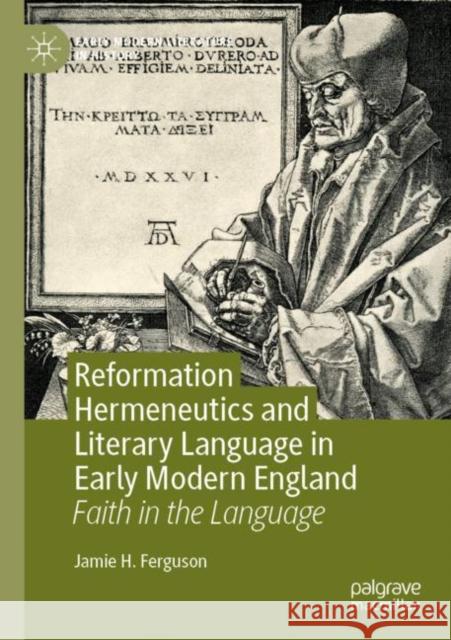Reformation Hermeneutics and Literary Language in Early Modern England: Faith in the Language » książka
Reformation Hermeneutics and Literary Language in Early Modern England: Faith in the Language
ISBN-13: 9783030817978 / Angielski
The expressive and literary capacities of post-Reformation English were largely shaped in response to the Bible.Faith in the Languageexamines the convergence of biblical interpretation and English literature, from William Tyndale to John Donne, and argues that the groundwork for a newly authoritative literary tradition in early modern England is laid in the discourse of biblical hermeneutics. The period 1525-1611 witnessed a proliferation of English biblical versions, provoking a century-long debate about how and whether the Bible should be rendered in English. These public, indeed institutional accounts of biblical English changed the language: questions about the relation between Scripture and exegetical tradition that shaped post-Reformation hermeneutics bore strange fruit in secular literature that defined itself through varying forms of autonomy vis-a-vis prior tradition.
The expressive and literary capacities of post-Reformation English were largely shaped in response to the Bible. Faith in the Language examines the convergence of biblical interpretation and English literature, from William Tyndale to John Donne, and argues that the groundwork for a newly authoritative literary tradition in early modern England is laid in the discourse of biblical hermeneutics. The period 1525-1611 witnessed a proliferation of English biblical versions, provoking a century-long debate about how and whether the Bible should be rendered in English. These public, indeed institutional accounts of biblical English changed the language: questions about the relation between Scripture and exegetical tradition that shaped post-Reformation hermeneutics bore strange fruit in secular literature that defined itself through varying forms of autonomy vis-a-vis prior tradition.











